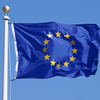The Bundestag adopts the Measles Protection Act
Federal Minister of Health Jens Spahn: “We are boosting protection against measles in schools and daycare facilities”
Children are to be protected effectively against measles. And this is why, in future, proof of age-appropriate measles vaccination protection must be given when being admitted to daycare facilities or schools. Persons who work in community and healthcare facilities must also be vaccinated against this dangerous infectious disease. These regulations are the subject of the Act on Protection against Measles and Strengthening Vaccine Prevention (Measles Protection Act), which was adopted today by the German Bundestag.
Far too often, measles is underestimated. They are highly contagious and can even lead to death. This infectious disease places above all those who cannot protect themselves – our children – at risk. This is why we are promoting measles protection in nursery schools, schools and child daycare facilities. And we are making it possible for the public health services to once again offer more serial vaccinations in schools. This also helps us in the fight against other infectious diseases, such as tetanus, diphtheria and whooping cough. Parents need to know that vaccination protects their child’s health.
-
Before being accepted into child daycare facilities, schools or other community facilities, all children who are at least one year old must prove that they have received the measles vaccine recommended by the Standing Committee on Vaccination.
-
Persons who wish to work in these facilities must also provide proof of full measles vaccine protection. The same applies to persons working in medical facilities.
-
Persons living in refugee and asylum-seeker accommodation and those employed there must also be vaccinated.
-
In keeping with the recommendations of the Standing Committee on Vaccination, persons with medical contraindications and those born before 1971 are exempted from mandatory vaccination. This also applies to persons who can prove that they had already had the disease.
-
Proof can be provided in the form of a vaccination booklet, the yellow health check-up booklet for children, or – especially if one has already had the disease – a medical certificate.
-
Children who are being cared for in a community facility, and persons already working in such facilities, must provide this proof by 31 July 2021.
-
Unvaccinated children can be barred from attending child daycare facilities. Unvaccinated personnel may not be employed in community or healthcare facilities.
-
Parents who fail to vaccinate their children attending community facilities can expect to be fined up to 2,500 euros. The fine can also be imposed on the management of daycare facilities that admit unvaccinated children. The same applies to unvaccinated personnel in community and healthcare facilities, as well as refugee accommodation centres and residents of the latter.
-
In future, all doctors (with the exception of dentists) may administer vaccines.
-
Digital immunisation documentation is also to be available. Patients can also be automatically reminded of appointments for follow-up and booster shots.
-
So as to enable the Public Health Services once again to increase voluntary serial vaccination in schools, the health insurance funds will be required to reach agreements with the Public Health Services on reimbursing the cost of these vaccinations.
-
The Federal Centre for Health Education will be stepping up its efforts to provide information on protective vaccines. To this end, the Federal Centre for Health Education will receive an additional 2 million euros per year.
-
Health insurance funds are to offer bonuses to insured persons for taking up protective vaccines and early detection measures (health check-ups and cancer screening).
-
In the context of regional pilot projects, in the future pharmacists are also to be allowed to administer flu vaccines to adults. They will need to receive medical training for this purpose.
The Act also contains regulations on the advertising of cosmetic surgery, prescriptions for medicinal products and the confidential securing of evidence in cases of abuse and sexual violence.
-
Advertising for cosmetic surgery that is predominantly or exclusively aimed at children and young persons is prohibited under the Act. This also applies to advertising in social networks.
-
In future, the confidential securing of evidence in cases of suspected sexual violence will be reimbursed by the health insurance funds. This will ensure that evidence is secured at an early stage in the cases of suspected rape or sexual abuse. Persons who have been raped, for example, will be able to approach a doctor, hospital or specialised facility in confidence and have evidence secured before going to the police. Doctors and hospitals will be able to bill the health insurance funds for these benefits without revealing the person’s identity to them.
-
Insured persons who need to have a regular supply of a specific medicinal product may, in future, obtain so-called refill prescriptions from their doctor. This will enable the pharmacy to dispense the medicinal product up to three times on the same prescription.
The Act will enter into force on 1 March 2020. It is not subject to the approval of the Bundesrat.
For further information: www.bundesgesundheitsministerium.de/impfpflicht




























